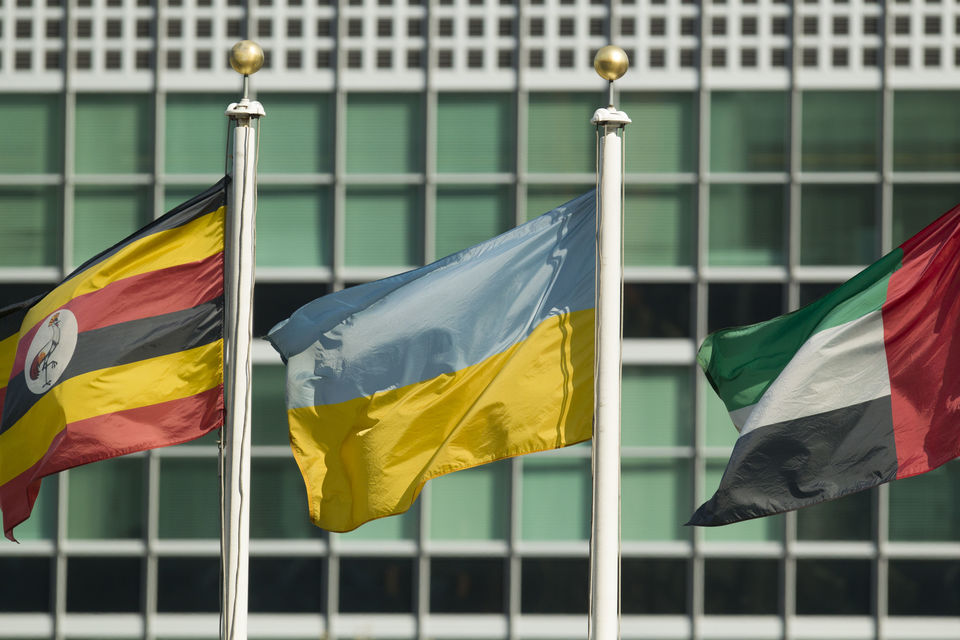Statement by the delegation of Ukraine at the UNGA Third Committee meeting on promotion and protection of the rights of children

Mr. Chair,
As I am about to deliver this statement in my national capacity, I also would like to highlight that Ukraine aligns itself with the statement, delivered by the EU.
Ukraine, as a party to numerous UN conventions on child protection, is strongly committed to the implementation of relevant provisions to ensure child protection, early childhood education, reducing inequality and to accelerate progress in the prevention and elimination of all forms of violence against children.
Just to mention a few examples of Ukraine’s steps in promoting rights and wellbeing of children as one of the priorities of our Government.
Last May, the Government of Ukraine adopted the State Social Program “National Action Plan for the Implementation of the UN Convention on the Rights of the Child” for the period until 2021. This program aims to improve our national policy of providing and protecting children’s rights, updating the model of work of state authorities and local self-government bodies at all levels in order to ensure that the interests of children are secured.
Ukraine also continues to develop its national legislation in line with the provisions of the UN GA Resolution 71/176 “Protecting children from bullying”. Last week the Parliament of Ukraine adopted the first draft of the Law of Ukraine “On Amendments to Certain Legislative Acts of Ukraine on Combating Bullying”, establishing responsibility for bullying.
Moreover, Ukraine is taking further steps to improve its legislation and ensure the access of children with special educational needs to free educational, psychological, pedagogical and correctional development services in state and municipal educational institutions. The recent Law regarding the access of persons with special educational needs to educational services, adopted in July this year, is yet another example.
New standards of quality in education and training are introduced through the program of a New Ukrainian School.
For those children, who stay in the temporarily occupied territories, both in Crimea and Donbass, the Government of Ukraine has introduced special programs to create an opportunity for them to get higher education at universities in mainland Ukraine.
Mr. Chair,
For the fifth year in a row, more than 220,000 children in Donetsk and Luhansk regions, that are affected by the Russian aggression, live inside the 30 km-wide ‘buffer zone’ stretched along the ‘contact line’ where armed hostilities occur every day.
In this regard, we strongly condemn reported practice of school shelling by Russian controlled illegal armed groups. Recent report of the OHCHR on the human rights situation in Ukraine describes such a case, when on 17 May 2018 shells hit the premises of school in Svitlodarsk on the government-controlled area, while 125 children were attending classes.
In addition to OSCE reported dozens of ceasefire violations, children along the contact line are heavily effected by landmines, explosive remnants of war (ERW) and unexploded ordnance (UXO) that are the leading cause of these child casualties, accounting for approximately two-thirds of all recorded injuries and deaths.
In this context, we highly value the practical assistance of UNICEF in training psychologists who work on the daily basis with children, students, teachers and other education personnel to address the problem of post-traumatic stress disorder, as well as UNICEF’s mine-risk education campaign providing children and their families in conflict-affected areas with lifesaving information about the risks posed by mines and explosives.
In conclusion, Mr. Chair, Ukraine reiterates its commitment to promote and protect the rights of the child, create favorable conditions for the child’s life and development, ensure equal opportunities for all children and protection of children from violence. Ukraine will remain a reliable partner and will make its utmost to support the efforts of the international community in the framework of the UN system, regional organizations and civil society in order to promote the protection of the rights of all children.
I thank you.
